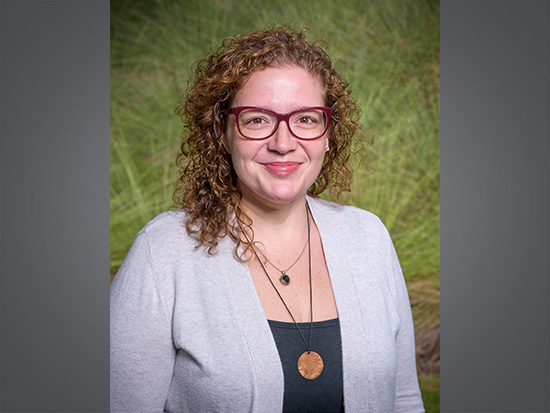The College of Arts and Sciences takes the lead on establishing UAB’s new Institute for Human Rights.
By Nick Patterson
 Birmingham’s history in the establishment of American civil rights propelled a yearlong commemoration in 2013, and now, UAB wants to take that recognition to a more global level.
Birmingham’s history in the establishment of American civil rights propelled a yearlong commemoration in 2013, and now, UAB wants to take that recognition to a more global level.Announced in June, the Institute for Human Rights will feature an interdisciplinary approach to address human rights questions and will utilize one of UAB’s well-known strengths: a highly diverse faculty bringing to bear knowledge and experiences from across multiple geopolitical boundaries.
As conceived by Dr. Robert Palazzo, Dean of the College of Arts and Sciences, the IHR will view human rights in a way broader than one department at UAB, and broader than people sometimes think of civil and human rights.
“It deals with the environment, it deals with justice. It deals with equality. It deals with a host of factors,” says Dr. John Sloan, Chair of the Department of Justice Sciences.
Sloan, along with Dr. Wendy Gunther-Canada, Chair of the Department of Government, developed the proposal for the IHR after being approached by Dean Palazzo in 2013. From there, the proposal had to gain the approval of the Provost, the Vice President for Research, and President Ray Watts. African American Studies Director Dr. Kathryn Morgan reviewed the proposal as did Dr. Douglas Fry, the new chair of the Department of Anthropology, an expert in conflict resolution and peace studies.
All of those involved in the proposal process agree that the Institute will be a game-changer for UAB and for Birmingham. “The Institute offers the university an opportunity to be become a local, national, and global leader in human rights,” says Dr. Kathryn Morgan. “Both UAB and the City of Birmingham will benefit from the research and teaching at the IHR.”
Birmingham is already developing a reputation in the field. The Birmingham Civil Rights Institute (BRCI) attracts scholars from around the world who come to the city to participate in programs, pore over the BCRI archives, listen to and watch oral histories of movement members, and more.
Priscilla Hancock Cooper, the interim President and CEO of the BCRI, says she is genuinely excited about the possibilities posed by the IHR. “Not only are we a cultural heritage destination...but we’re also an educational institution,” Cooper says. “I think in training [K-12] teachers, for example, we greatly multiply the numbers of students that we reach. So we look forward to partnering with UAB. The College of Arts and Sciences has the ability to offer courses and a structured academic learning experience that is different than [what] we offer here and that we feel is complementary.”
The IHR also will involve students from UAB and elsewhere. UAB students will have internships and study away opportunities through the IHR, and students in other locations will have the chance to come to Birmingham to study.
Because of its interdisciplinary nature, the IHR will bring together instructors from Anthropology, Sociology, Justice Sciences, Psychology, Public Health, and many other fields. “Faculty across disciplines offer a curriculum focusing on the intersection of civil and human rights within the College of Arts and Sciences,” says Dr. Wendy Gunther-Canada. “The newly founded Institute will expand scholarly collaboration and student engagement through coursework, speakers and colloquia, and partnerships beyond campus.”
A search for the Institute director is underway. For more information on the Institute’s plans and programs, visit uab.edu/cas/humanrights.


